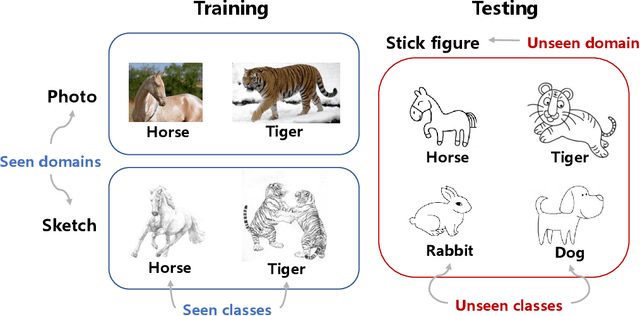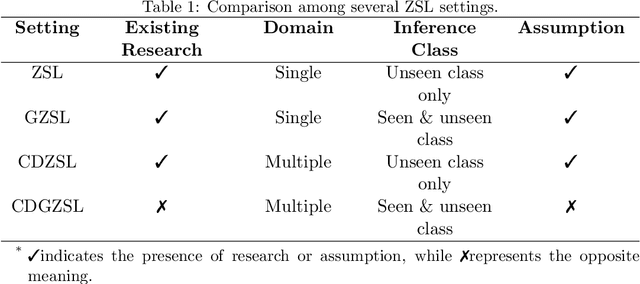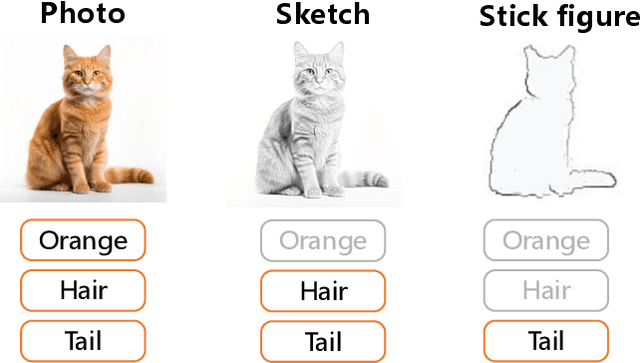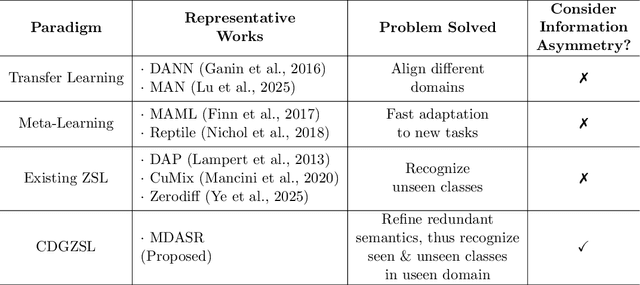Less but Better: Enabling Generalized Zero-shot Learning Towards Unseen Domains by Intrinsic Learning from Redundant LLM Semantics
Paper and Code
Mar 21, 2024



Generalized zero-shot learning (GZSL) focuses on recognizing seen and unseen classes against domain shift problem (DSP) where data of unseen classes may be misclassified as seen classes. However, existing GZSL is still limited to seen domains. In the current work, we pioneer cross-domain GZSL (CDGZSL) which addresses GZSL towards unseen domains. Different from existing GZSL methods which alleviate DSP by generating features of unseen classes with semantics, CDGZSL needs to construct a common feature space across domains and acquire the corresponding intrinsic semantics shared among domains to transfer from seen to unseen domains. Considering the information asymmetry problem caused by redundant class semantics annotated with large language models (LLMs), we present Meta Domain Alignment Semantic Refinement (MDASR). Technically, MDASR consists of two parts: Inter-class Similarity Alignment (ISA), which eliminates the non-intrinsic semantics not shared across all domains under the guidance of inter-class feature relationships, and Unseen-class Meta Generation (UMG), which preserves intrinsic semantics to maintain connectivity between seen and unseen classes by simulating feature generation. MDASR effectively aligns the redundant semantic space with the common feature space, mitigating the information asymmetry in CDGZSL. The effectiveness of MDASR is demonstrated on the Office-Home and Mini-DomainNet, and we have shared the LLM-based semantics for these datasets as the benchmark.
 Add to Chrome
Add to Chrome Add to Firefox
Add to Firefox Add to Edge
Add to Edge